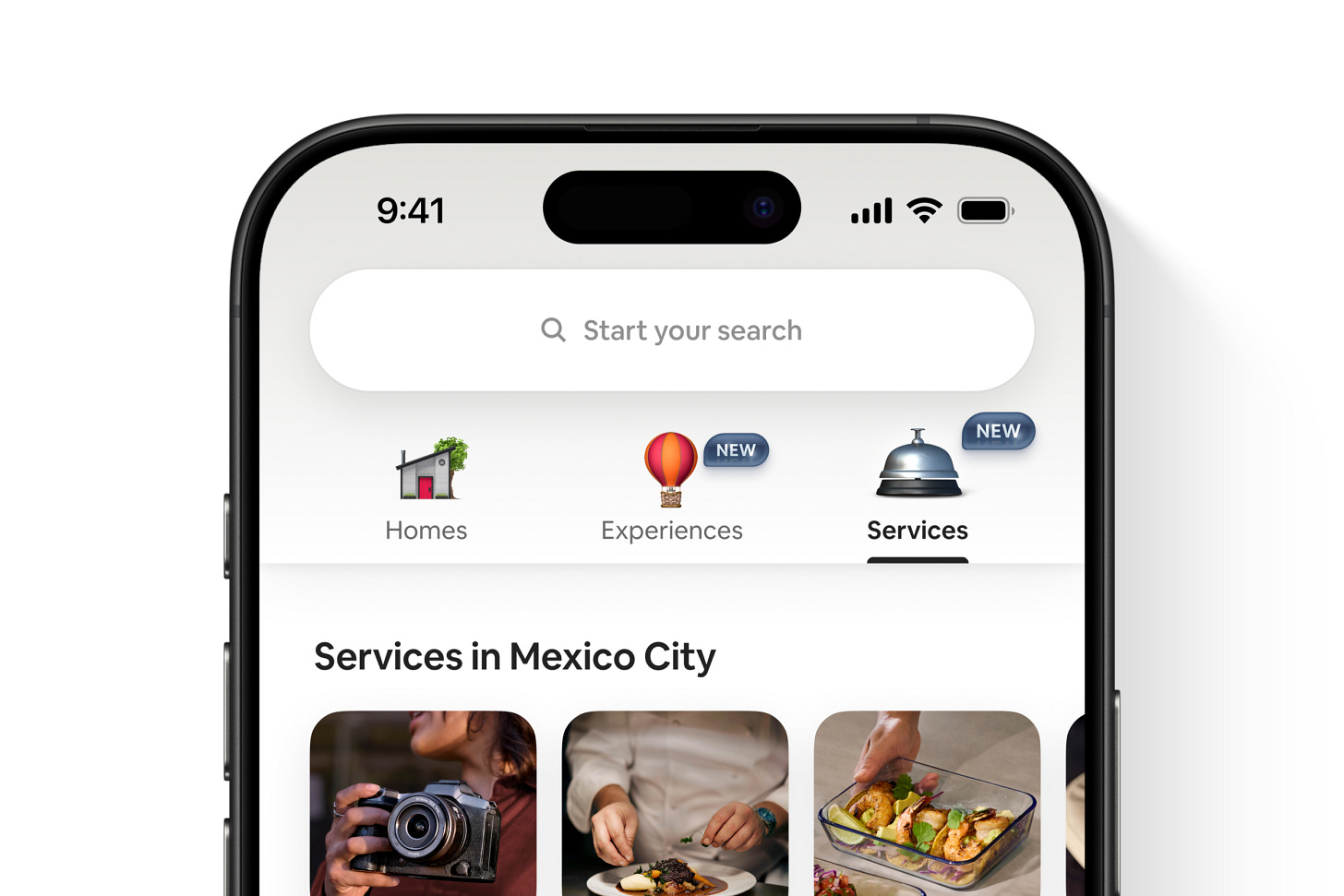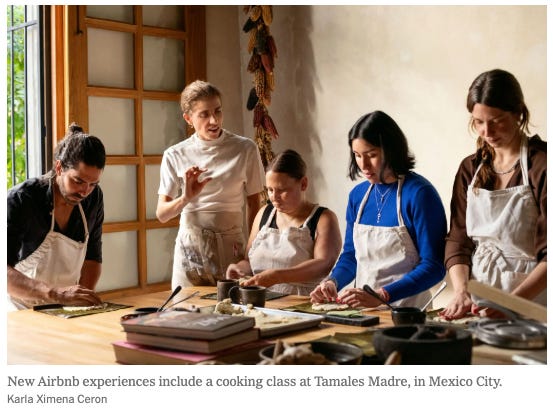Think You "Can’t Innovate without an RTO Mandate?" Meet Airbnb.
"Collaboration and innovation don’t only happen when we’re working in person."
Airbnb has not only maintained its "Live and Work Anywhere" (LAWA) principles, they've supercharged them with something crucial: strategic regional gatherings and monthly in-person collaboration that aligns perfectly with their business rhythms. The results speak for themselves: a completely redesigned app and a bold expansion into services and experiences.
It’s not a small pilot: they’re launching Experiences in 650 cities and Services in 260 cities.
Iain Roberts, Airbnb’s Global Head of Employee Experience, laid out that this is “pretty compelling evidence that small teams can have a big impact, and that collaboration and innovation don’t only happen when we’re working in person.”
A year ago, Sam Gadd and I had the joy of supporting an Airbnb team led by David O’Neill and Karrah Phillips, alongside Iain Roberts, Jenna Cushner, Liz Thigpen, Danni Anagnostaras and others to tackle a fundamental question: how do you create meaningful togetherness in a distributed workforce?
While most companies that were once office-bound stumbled through the pandemic by hiring remote employees and making promises about funding team gatherings (which often evaporated when budgets got tight), Airbnb charted a different course. When engagement challenges inevitably arose, their competitors reached for the panic button—mandating returns to offices and watching their best talent head for the exits and engagement falter.
Collaboration Tax vs First Principles
Airbnb faced the same collaboration tax that plagues companies new to the flexible or remote-first approach: individual freedom created a lack of cohesive structure and tasked managers with figuring out when teams should converge. But instead of retreating to magical thinking that some arbitrary number of office days would solve everything, as some CEOs have done, they dug deeper.
The reality most large organizations ignore: teams are now fundamentally distributed. No matter what your RTO policy says, people on your teams – especially in critical cross-functional projects – work in different cities, not just different floors.
Airbnb's approach started with two foundational principles:
Tap into the best talent, anywhere. Their LAWA approach had already opened doors to broader hiring, attracting top-tier talent—including talented people from firms like Apple.
"The best people are located everywhere. The future is going to be more flexible, people distributed in more locations, coming together periodically for bursts of work." – CEO Brian Chesky
Fit the rhythm of the business. Airbnb launches major products twice a year; as Chesky put it, that "creates a rhythm of the company, creates common cause." In a conversation Chesky had with Adam Grant, Grant nailed why this matters for in-person time:
"I like those rhythms, they create a cadence. The fact that you have a rhythm is more important than what you put in it.
Building Forward
Those principles created the foundations for finding a solution. Airbnb crafted a path forward guided by four additional principles articulated by Iain Roberts:
1️⃣ Prototype and iterate. Getting better requires willingness to experiment and learn. Airbnb began gathering crossfunctional teams working on product launches for loosely designed Sprint Weeks, which became test grounds for building In Person Weeks.
"We needed to evolve to create a compelling draw for more people." – Iain Roberts
What started as team-designed offsites and sprints, evolved to monthly in-person weeks at Airbnb's San Francisco HQ. Airbnb discovered that the biggest draw to work from HQ was that a concentration of other teams were also in the building. Team leaders have flexibility to determine how often their team members attend these weeks.
2️⃣ Absorb the complexity. Cross-functional teams collaborated to make it seamless for leaders. Orchestrating the "when" ensured office time delivered real value.
"Dedicated time in the office should be meaningful, serendipitous, productive, culture building, and more." – Iain Roberts
I witnessed the first two In Person Weeks at Airbnb's SF headquarters, and the energy was electric.
3️⃣ Experience quality matters. Offices remain essential tools for Airbnb. The company began working to elevate experience quality, and is testing new formats for spaces and programming.
"Offices are going to feel more residential. People want a more comfortable, a more residential feel. The offices are going to be a venue for collaboration. If you need heads-down time, you can do that anywhere." – Brian Chesky
4️⃣ Movements not mandates. FOMO, not RTO. The language focused on invitation, not dictation, clearly connected to purpose and business rhythm.
"Imagine you haven't seen a person in a long time, you feel joy.. [but] if you see them every day, you can take them for granted, the conversations get transactional. There's a sweet spot where the connections still feel special." – Brian Chesky
The Proof Is in the Performance
While other tech companies tangled themselves in return-to-office drama and watched their cultures fracture, Airbnb doubled down on flexibility with structure – and it’s paying off.
In an interview with Danielle Abril, Roberts also noted that even prior to the latest massive innovations, Airbnb had seen "a jump in productivity" – releasing 535 updates in the past 3 years, increasing annually.
"We’re able to achieve more. Our employees feel that the model works for them."
The lesson is clear: meaningful togetherness doesn't come from arbitrary office mandates. It comes from creating purposeful moments that align with how your business actually works. Airbnb's approach proves that distributed teams can not only collaborate effectively, they can out-innovate the competition.
Sometimes the best way forward isn't forcing people back to the past. It's designing a future where flexibility and purpose coexist brilliantly.
How’s your team leveraging your rhythms to build better solutions?
Kudos Sam Gadd for being an awesome partner, and Karrah Phillips and Dave O’Neill for doing the hard work! Looking forward to seeing what’s next.
Like what you’re reading? Lots more storytelling from leaders charting new and better paths for people and their organizations in Work Forward. Subscribe today!





Appreciate this Brian - very practical example of what can - and does - work due to intentional leadership. ‘Movements, not mandates’ resonates - thank you for always sharing thoughtful views we can learn from.
Great article.
Remote collaboration works so well at Airbnb in large part because they have an intentional culture focused on it. A lot of organizations don’t have that sort of structure. In person collaboration ends up being the easy way out.